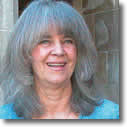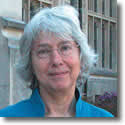Retiring Faculty
Having given Vassar several decades of dedicated service, the following faculty members will retire this year, leaving students and colleagues sad to see them go but certain that their lives after Vassar will be active and fulfilling.
Michael McCarthy
Professor of Philosophy
“When I began teaching here in 1968, I was 26 years old and the students were nearly my peers; when I retire at 64, they could easily be my grandchildren,”

A graduate of the University of Notre Dame and Yale University, McCarthy joined the philosophy department at Vassar soon after receiving his M. A. In 1969 he became a House Fellow for Davison, which he and his wife Barbara “entered with one daughter and graduated with three.” Having lived on campus during a time of several major transitions, McCarthy said, “Vassar has never seemed as electric or exciting as it did between 1968 and 1973. But the caliber of students at Vassar today is stronger than at any time in my memory.”
McCarthy’s contributions to philosophy stretch far beyond Vassar; he has been an associate fellow at the Woodstock Theological Center in Washington, DC, and a board member of the Lonergan Institute at Boston College. His books include The Crisis of Philosophy, The Ethics of Lobbying, and El Pensiamento Politico de Hannah Arendt, along with a recent publication about Arendt’s political humanism.
He will miss Vassar. “I have deeply enjoyed my years here,” he said. “It has been a very good place to teach, to be married and raise a family, to create enduring friendships, to pursue the life of the mind. I am grateful for all that Vassar has meant to the entire McCarthy family.” So what does a philosophy professor do when he retires? “As long as I have the wits and energy I will continue to think and write on topics philosophical, political, religious, and personal.”
Robin Trainor
Professor of Education

Although she has received many awards for her work, Trainor’s fondest recollections are of her mentor, Tom McHugh, her colleagues in the department, and her students, who are “still an absolute delight to teach (and learn from)—they are bright, articulate, challenging, and are now more deeply committed to social justice issues.” This is important, she feels, because teacher education at Vassar is critical. “We need bright young men and women who are grounded in liberal arts and sound educational pedagogy in our school systems,” she said.
Instrumental in bringing American Sign Language courses to Vassar, Trainor also focuses on children outside the classroom and, in retirement, plans to devote more time to the local Child Abuse Prevention Center and the Grace Smith House for victims of domestic violence. She also would like to get involved with Habitat for Humanity. And finally, she plans to use some of her newfound free time for herself, traveling and catching up on “all the books [she’s] only had time to skim!”
Christina Hammond
Lecturer and Coordinator of Laboratory Instruction

Hammond was deeply involved with Vassar chemistry, developing and teaching an honors chemistry laboratory from 1989 to 1992 and playing an essential role in the planning of and moving to Mudd Chemistry Building. Even after 43 years, Hammond said, “I do not think Vassar students have changed all that much. They have always been focused, interested, hardworking, bright, and very enjoyable to work with. I will miss the daily interactions with them.”
One of her favorite memories of Vassar will be “the satisfaction of helping students develop their lab skills from an often tentative start as freshmen to quite confident lab workers by the time they complete organic chemistry.” While Hammond says she’ll miss Vassar, she looks forward to spending more time with her family and working on her favorite recreational activity, perennial gardening.
Elizabeth Oktay
Head of Library Acquisitions
After graduating from Antioch College and Columbia University with a master’s in library science, Elizabeth Oktay first came to Vassar, part time, in fall 1966. Working in a variety of departments in the Vassar College Libraries, she made the move to full time in 1983 and

Oktay has seen a lot of change in her years at Vassar—from the transition to coeducation to the arrival of the Internet. Now, “a basic reference question is more likely answered by an online or Google search than by a quick look up in a print dictionary, encyclopedia, or handbook,” she said, adding, “more than one third of the libraries’ acquisitions expenditures are for online resources, and appropriately so.”
Oktay also made sure to enjoy Vassar life outside the workplace, going to talks by people such as Mary McCarthy ’33 and Hilary Clinton, and “dancing the night away in the Aula, many years ago, at an end-of-semester faculty party hosted by the dean of the faculty.” With retirement in view, she looks forward to “having more time with family and friends, having the opportunity to travel more and stay a while longer, auditing classes at Vassar, and pursuing in greater depth many personal interests and community activities.”
Photo credit: Craig Burdett
